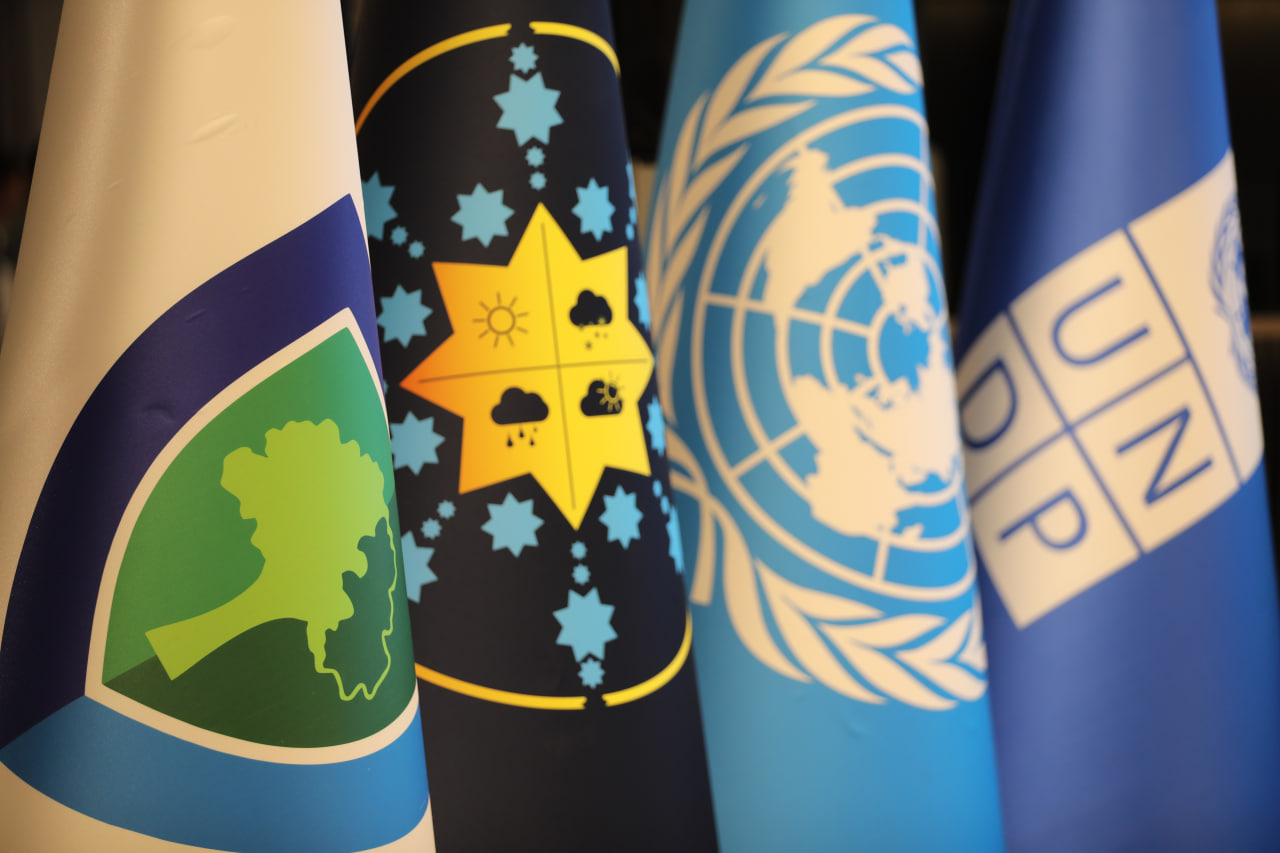
On 6-7 May 2024 Conference on Climate Change and Adaptation took place in Tashkent.
The conference was organized by UNDP jointly with the Committee on the Development of the Aral Sea Region and Ecology of the Senate of the Oliy Majlis of the Republic of Uzbekistan, the Hydrometeorological Service Agency (Uzhydromet) of the Ministry of Ecology, Environmental Protection and Climate Change of the Republic of Uzbekistan, and the Ecological Movement of Uzbekistan with financial support from the Green Climate Fund (GCF).
The objective of the conference is to present approaches and opportunities to prioritize adaptation actions and develop mechanisms for climate change adaptation, as well as to raise awareness among countries of the Central Asian region on lessons learned in the preparation of National Adaptation Plans.
The event was attended by representatives of Azerbaijan, Kazakhstan, the Kyrgyz Republic, Tajikistan, Turkmenistan, governmental and non-governmental organizations, the scientific community, international development agencies and financial institutions working in the field of climate change adaptation. As noted, the climate is changing and its impact is already being felt: the weather is becoming more erratic, air temperatures are rising, hydrological regimes are changing, and adverse weather phenomena such as droughts, mudslides, heat and cold waves, strong winds, intense precipitation and dust storms are becoming more frequent. The climate change is now affecting many developing countries that lack the social, technological and financial resources to adapt. Millions of people are already facing water and food shortages, as well as increasing climate risks that threaten public health.
It is an undeniable fact that Central Asian countries are the most exposed and vulnerable to climate change. The air temperature here is rising 1.7 times faster than the average on the planet, which leads to a reduction in the area of glaciers, the volume of which has decreased by almost 32% over the past 50 years. This entails a decrease in river flows and poses risks to the region's food and energy security. The region is already experiencing increasing water scarcity (water availability per capita in Central Asia has halved from 3,500 m3 to 1,630 m3), increasing duration of heat waves, changes in precipitation patterns and intensity, and as a result, deterioration in the quality of fertile land, as well as rapid desertification processes, which irreversibly lead to an increase in the frequency of dust and sandstorms in areas not previously exposed to these phenomena.

As noted, in this context, the transition to a ‘green economy’ and the fight against climate change, mitigation of its impact, protection of atmospheric air, and expansion of green spaces have become a priority within the framework of reforms in the sphere of state and social construction, which have been consistently and step by step implemented in Uzbekistan.

"Climate change requires Central Asian countries to develop long-term strategies, concepts, programmes and action plans for climate change mitigation and adaptation. In the absence of additional resource conservation and adaptation measures, countries may face a number of challenges leading to unsustainable agricultural production and threatening the food security of countries in the region,"noted in his speech Anas Fayyad Qarman, UNDP Resident Representative a.i. in Uzbekistan

It was also noted that there is a need to plan and implement actions to mitigate potential climate change threats. All of this - the planning and expected outcomes of actions - should be reflected in local, regional and national adaptation plans.
It was also noted, that the Green Climate Fund (GCF) provides financial support to fulfill countries' commitments to the Paris Agreement to develop National Adaptation Plans. The conference presented the results of project activities in Central Asian countries and discussed approaches to developing adaptation plans for the economic sectors most vulnerable to climate change.
Following the Conference Agenda, the climate change adaptation was discussed by relevant sessions - water, agriculture, health, construction sectors and disaster risk reduction.

Adaptation finance was also discussed on the sidelines of the conference. The thematic session explored opportunities for engaging the private sector and innovative adaptation financing mechanisms.
The conference resulted in the adoption of recommendations for the development of a National Adaptation Plan and raising awareness of climate change adaptation measures among the general public.
The conference was organized under the United Nations Development Programme (UNDP), Green Climate Fund (GCF) and Hydrometeorological Service Agency (Uzhydromet) of the Ministry of Ecology, Environmental Protection and Climate Change of the Republic of Uzbekistan Project “Sector driven National Adaptation Plan (NAP) to advance medium- and long-term adaptation planning in Uzbekistan”.
Additional information:
The governments of Central Asian countries pay special attention to mitigating the climate change impact on the economy and livelihoods, as well as to climate change adaptation. The countries have unconditionally ratified the Paris Agreement, thereby making certain commitments to reduce specific greenhouse gas emissions and integrate adaptation policies into development strategies. The Paris Agreement makes clear the need to limit global temperature rise through mitigation and implement adaptation mechanisms, and the need for all Parties to participate in these efforts. Adaptation is seen both as a matter of planning and implementation at the national level, and as a matter of promotion, reporting and assessment of progress at the international level.
Ratification of the Paris Agreement on Climate Change (Paris, December 12, 2015) enables activities to be based on international requirements. Under the Paris Agreement, Uzbekistan pledged to reduce GHG emissions per unit of GDP by 35% from 2010 to 2030. The renewed commitments include national sustainable development goals as well as social and economic development goals, depending on current national circumstances. The nationwide project ‘Yashil Makon’, launched on the initiative of the President of our country, enjoys wide public support and under which 200 million saplings are planted in the country annually.
Article 7 of the Paris Agreement explicitly requires Parties to assess the climate change impact on different systems and their vulnerability, and have national adaptation plans. Moreover, the Agreement provides for full reporting by countries at the international level on adaptation measures taken, their implementation and effectiveness.

 Locations
Locations









